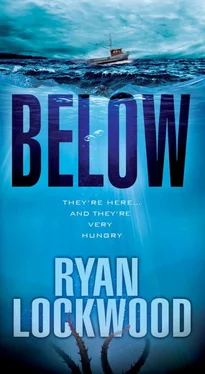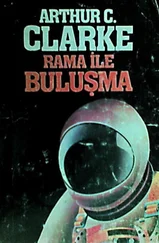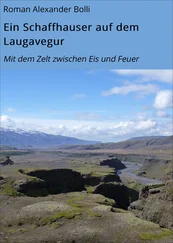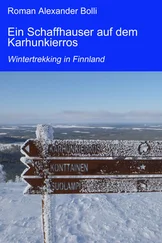“You think she’ll keep until we can get her on ice?”
“Probably. So it’s female, huh? I still have no idea how you can tell if they’re boys or girls.”
“Takes practice. Give me a hand, cowboy.”
“She’s not even dead yet.”
“Close enough.”
Sturman lifted his left arm and moved it around a bit. It was healing nicely. “Yeah, I think my arm’s workable.” He knelt by her. “Hey, Val… why do you think they’re dying now?”
“Might be the parasites, but it’s probably just old age. Humboldt squid don’t live long after maturity, you know. Mere months.”
“Candles in the wind, huh?”
“You could say that. It’s their time now.”
“If they don’t live that long, maybe they’re not as big a threat as everyone thinks.”
Val realized that he, like everyone else, probably didn’t grasp where the oceans were headed. “There will be more, Will. A lot more.”
“More than there should be?”
Val shrugged. “How many should there be? There are certainly fewer sharks and whales than there were before people came along. And more Humboldt squid.”
He looked away from her toward the distorted orange sun setting over the water. She followed his gaze, neither of them speaking as they got lost in the moment.
Despite the vastness of the ocean, and its seeming ability to shrug off the destructive actions of mankind, it was changing. Val looked out at the sea, where four powerboats belched exhaust as they cruised noisily down the coastline. She looked at an oil platform several miles offshore, solidly built on top of the seabed. She looked at the trash amassed at the high-tide line just above them—water bottles, cigarette butts, Styrofoam bits. She could do her part, and that was all.
She looked back at the man in the cowboy hat.
“Let’s get to work, partner.”
Many fathoms below the turmoil on the surface of the ocean, it was calm. Silence dominated.
A storm had just moved in from across the Pacific, and where air met sea the waves slammed mightily against one another as they fought to establish order. Their efforts would eventually yield a rhythmic series of swells from the chaotic input of energy, but only after a fierce battle. Farther down the water column, the energy of the storm steadily dissipated, until in the dim light a few hundred feet below the surface, there was no indication that there was any storm at all. There, the pelagic world was tranquil, quiet. Seemingly empty.
But in the sluggish, steady current of the ocean’s cool womb, it was not empty. There was life.
There, they drifted.
To most creatures, even those designed to live and hunt in the open ocean, they were invisible. For not only were they miniscule, they were also transparent, with bodies composed almost entirely of the water that surrounded them. Only when they rarely happened upon shallower waters to be struck by direct sunlight could even their gossamer outer skins and solid structures be detected.
For now, they were small. They had come into being and dispersed across the open ocean only recently. Their primitive nervous systems, larger structures, and deadly stinging cells would not fully develop for some time. For now, they were just beginning to attempt the aimless, rhythmic pulsations that pushed them blindly through the water in no apparent direction, as they lacked the ability to see. Most of them would not survive.
But others would.
They were countless in number, millions upon millions.
Billions.
They had survived almost since the dawn of time, but would soon thrive in a way their kind never had, with few predators and less competition than in any point in history. But they would not relish this victory. They could not process any thoughts without a true brain. They simply existed.
So they would grow, slowly, as they fed on passing food. They would mature. The ocean currents would gather them in their indifference into a massive horde. They would drift into prey.
They would immobilize it.
And then, on their living prey, they would feed.
Publishing a novel, from the idea phase until it hits the shelves, is not possible without the efforts and advice of many. The author’s gratitude goes out to the following wonderful people:
To my wife, April, thank you for your endless patience and for putting up with me during my mental absences.
To my brother, Matt, thank you for your creativity and keen eye for detail.
To KT, thank you for making me believe in my work.
To my mom, thank you for your support and faith.
To cousins Terry and John, thank you for the legal advice.
To my editor, Gary Goldstein, thank you for bringing in all the right people and swinging for the fence—and for enjoying the manuscript in the first place.
To the copyeditors, cover artists, sales staff, and all the professionals at Kensington Books involved in this process, thank you for making my dream a reality and giving this book a supreme shot at success.
And to my agent, Jim Donovan, thank you for taking a chance on a new author and showing him the publishing ropes.
RYAN LOCKWOOD experienced many interesting outdoor jobs before writing his first novel, requiring him to assist with mountain lion capture, scrape barnacles off submerged boat hulls, fight Western wildfires, and measure storm runoff in the middle of the night. He holds degrees in technical journalism and environmental science and has been employed as a biological research assistant, professional editor, and public relations coordinator. When not writing, he scuba dives, climbs mountains, hunts to fill the freezer, and strives to become a better sailor. He lives in Colorado with his family.

PINNACLE BOOKS are published by
Kensington Publishing Corp.
119 West 40th Street
New York, NY 10018
Copyright © 2013 Ryan Lockwood
All rights reserved. No part of this book may be reproduced in any form or by any means without the prior written consent of the publisher, excepting brief quotes used in reviews.
If you purchased this book without a cover, you should be aware that this book is stolen property. It was reported as “unsold and destroyed” to the publisher, and neither the author nor the publisher has received any payment for this “stripped book.”
This book is a work of fiction. Names, characters, businesses, organizations, places, events, and incidents either are the product of the author’s imagination or are used fictitiously. Any resemblance to actual persons, living or dead, events, or locales is entirely coincidental.
PINNACLE BOOKS and the Pinnacle logo are Reg. U.S. Pat. & TM Off.
ISBN: 978-0-7860-3287-7
First electronic edition: July 2013
ISBN-13: 978-0-7860-3288-4
ISBN-10: 0-7860-3288-X













